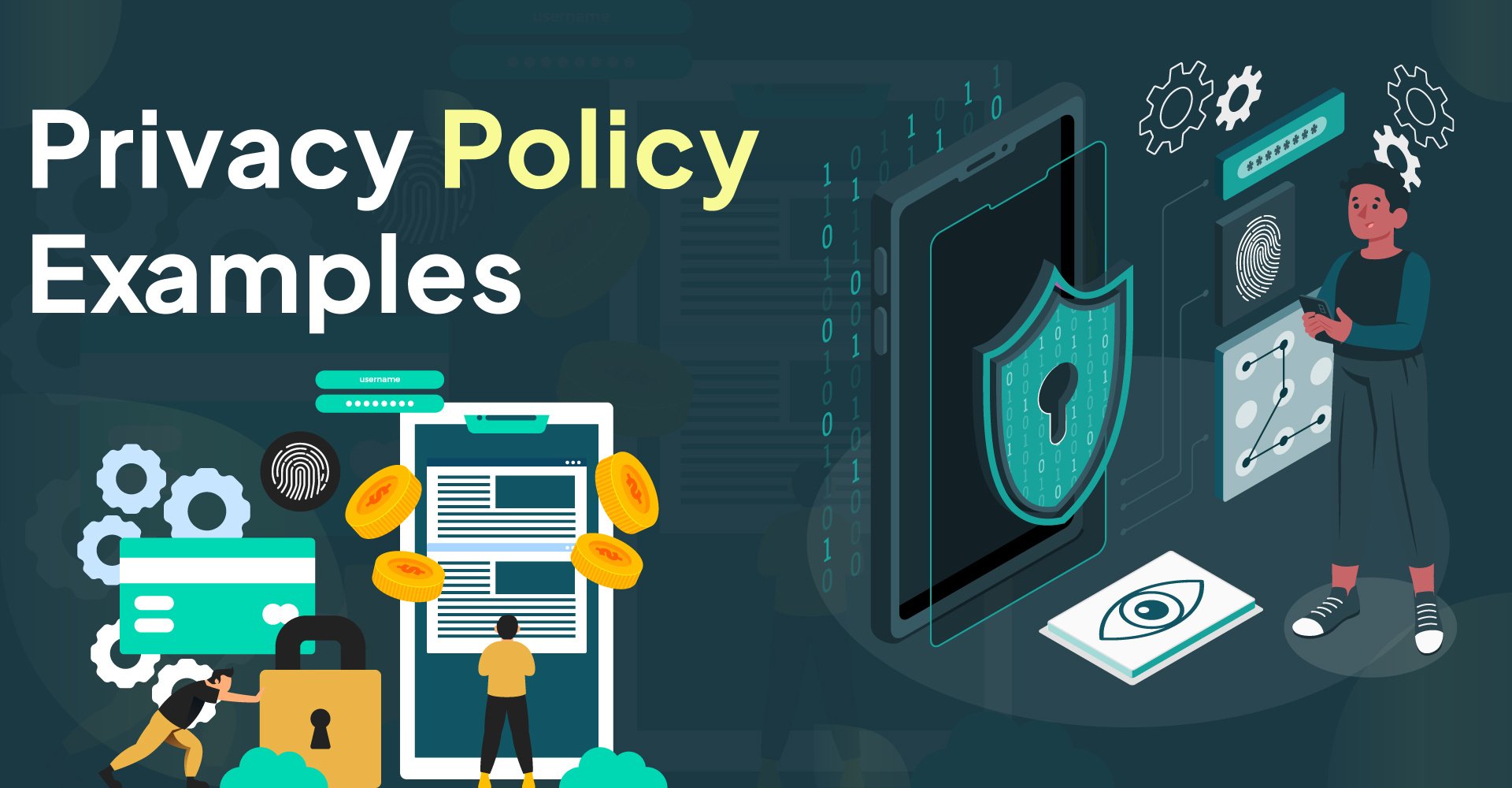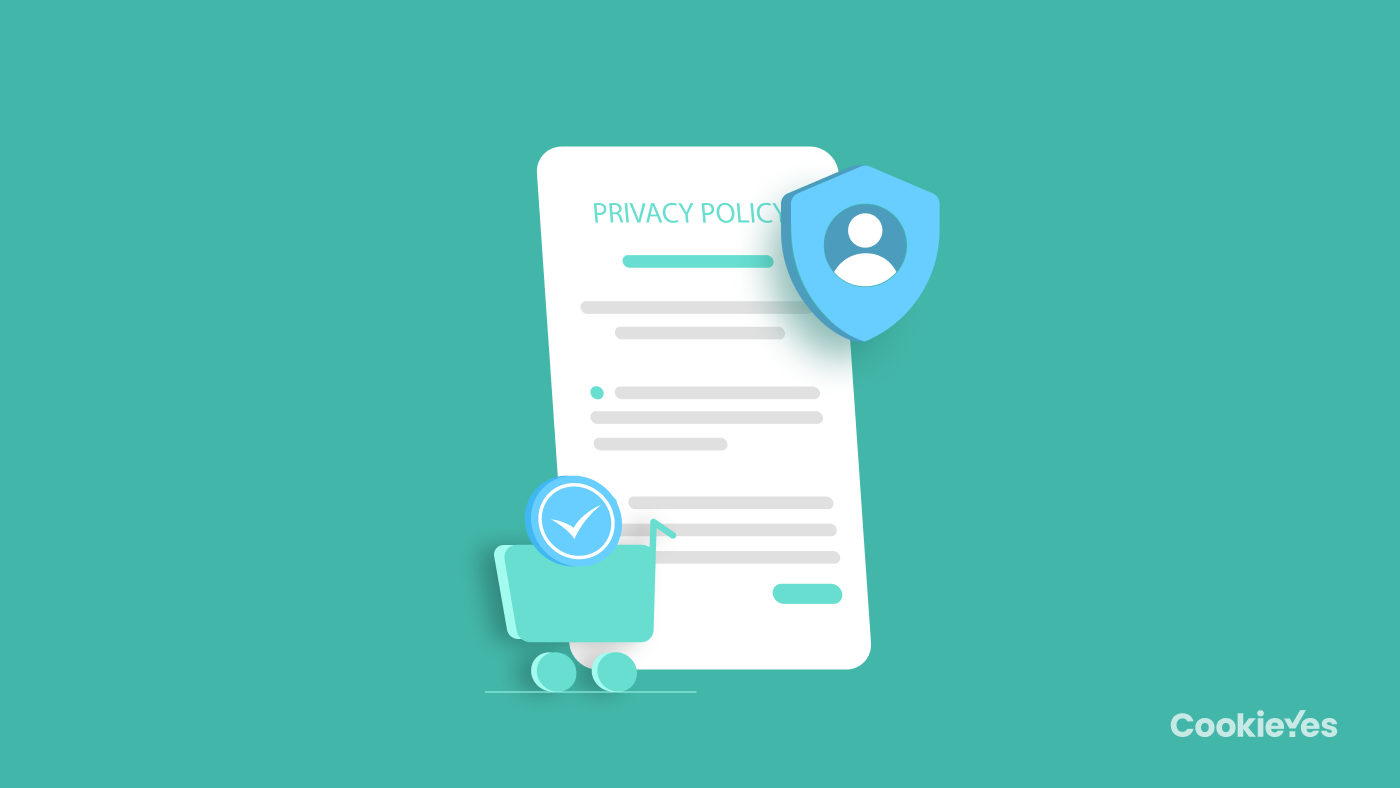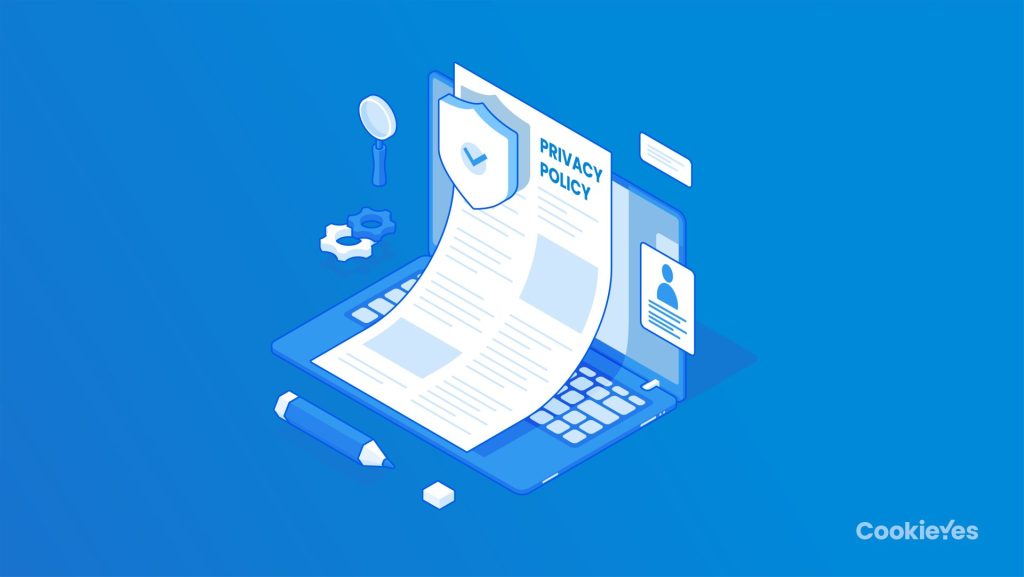Privacy policies are essential for online safety. They protect user data and build trust.
Understanding privacy policies is crucial for both website owners and users. These documents outline how personal information is collected, used, and safeguarded. A privacy policy is more than just legal jargon; it is a commitment to transparency and respect for individual privacy.
With increasing digital interactions, knowing what a privacy policy entails can empower you to make informed decisions online. It’s important to recognize which details are shared and how they are handled. This introduction will help you navigate the basics of privacy policies, highlighting their importance in today’s digital age. Understanding these policies ensures your data remains secure and your rights protected.

Credit: www.enzuzo.com
Importance Of Privacy Policies
Privacy policies are crucial for any website or online service. They explain how user data is collected, used, and protected. A clear and thorough privacy policy is essential. It not only informs users but also builds trust.
Protecting Personal Data
Personal data includes names, email addresses, and payment information. Websites collect this data for various reasons. Without proper protection, this data can be misused. Privacy policies outline the measures taken to safeguard personal information. They detail encryption methods and data storage practices. This transparency reassures users their data is secure.
Building Trust With Users
Trust is vital for any online interaction. Users want to know their data is safe. A clear privacy policy builds this trust. It shows the website values user privacy. Trust leads to a loyal user base. Users are more likely to return and recommend the service. A strong privacy policy can be a key factor in user retention.
Key Elements Of A Privacy Policy
A privacy policy outlines how a company collects, uses, and protects personal information. It includes data collection methods, user rights, and security measures. Clear language ensures users understand their privacy rights and how their data is handled.
When browsing websites, have you ever paused to think about how your personal information is collected and used? The privacy policy of a website spells out the details. It’s not just legal jargon; it’s a map of how your data is handled. Understanding the key elements of a privacy policy can empower you to make informed choices online. ###Data Collection Methods
Websites gather your information in various ways, and it’s crucial to know how. Some sites directly ask for details like your name and email, especially when you sign up for newsletters or accounts. Other times, data is collected indirectly through cookies and tracking technologies that monitor your browsing habits. Have you ever noticed how ads seem to follow you from site to site? That’s a result of these indirect data collection methods. Understanding these processes can help you manage your online footprint better. You can even adjust your browser settings to limit this data collection. ###Usage Of Collected Data
Once your data is collected, it’s used for several purposes. Websites may use your information to improve user experience, such as personalizing content and recommendations. This can make your interactions more relevant and enjoyable. However, data is also used for marketing and advertising, which might make some users uncomfortable. It’s important to know if your data is shared with third parties. You might wonder, is the convenience worth the cost of privacy? Being aware of these practices can guide you in making decisions about which sites to trust with your information. Remember, a well-crafted privacy policy is your ally in navigating the digital world. By understanding these key elements, you take control of your personal information. So next time you’re on a website, take a moment to glance at their privacy policy. Your data deserves it.User Rights And Control
Users have the right to control their personal data. Our privacy policy ensures transparency and user empowerment.
Privacy Policy statements are crucial for protecting user rights. These policies give users control over their personal information. Users need to know their rights and how they can manage their data.Access To Personal Information
Users have the right to access their personal information. This includes data collected during account creation or service use. Companies must provide this information upon request. Users can verify the data’s accuracy. They can update incorrect details. This ensures their data is always current.Options For Data Deletion
Users can request the deletion of their personal data. This right is vital for maintaining privacy. Companies must respect these requests. They should delete the data promptly. Users should know how to make these requests. Clear instructions should be available in the privacy policy. This empowers users to control their information.
Credit: www.clarip.com
Third-party Sharing
Understanding how your data is shared with third parties is crucial. Third-party sharing involves disclosing your information to external entities. These entities help improve services, analyze data, and enhance user experience. Transparency in how your data is shared is essential for building trust. Let’s explore how we handle third-party sharing.
Partner Organizations
We collaborate with trusted partner organizations to enhance our offerings. These partners assist in providing specialized services. They may include marketing firms, analytics providers, and service vendors. Each partner is carefully vetted to ensure data security. We maintain strict agreements to protect your privacy. Sharing data helps improve services without compromising your trust.
User Consent For Sharing
Your consent is vital for any data sharing. We ensure you are informed before sharing any information. Clear consent forms are provided for transparency. You have control over what data gets shared. Opt-in options are available for specific data sharing. Your choices are respected, ensuring a secure online experience.
Data Security Measures
Data security measures are crucial in safeguarding your personal information online. With cyber threats on the rise, websites need to implement robust strategies to protect your data. Let’s dive into some effective ways to ensure data security in privacy policies.
Encryption Techniques
Imagine sending a secret message that only you and the recipient can read. That’s what encryption does for your data. It scrambles your information, making it unreadable to anyone without the proper key.
Websites use encryption to protect sensitive data like passwords and credit card details. Strong encryption methods like AES (Advanced Encryption Standard) are commonly employed to ensure your data is safe during transmission.
Think about the last time you shopped online. Did you notice the little padlock icon in the browser’s address bar? This symbol indicates that encryption is active, offering a layer of protection for your transactions.
Regular Security Audits
How often do you check your home’s locks to ensure they’re working? Websites do the same with regular security audits. These audits help identify vulnerabilities before they can be exploited.
Conducting regular audits ensures that data protection measures are up to date. It involves reviewing security protocols and testing for weaknesses. This proactive approach helps prevent data breaches.
Imagine a website that forgets to check its security measures. It becomes an easy target for hackers. By prioritizing audits, websites stay one step ahead in protecting your information.
Have you ever wondered how secure your personal data really is? Next time you’re online, look for signs of encryption and ask yourself if the site prioritizes regular security audits. Your data deserves the best protection. Isn’t it time you demanded it?
Compliance With Legal Standards
Compliance with legal standards is crucial for your business’s privacy policy. It’s not just about ticking boxes, but about building trust with your users. By adhering to specific regulations, you demonstrate your commitment to protecting user data.
Gdpr Guidelines
The General Data Protection Regulation (GDPR) sets a high bar for data protection. It’s applicable if your business interacts with users in the European Union. You might wonder why it matters if you’re based elsewhere. The answer is simple: it expands your market reach and avoids hefty fines.
GDPR requires transparency and accountability. You should clearly explain what data you collect and why. Consider it an opportunity to engage your users with clarity. Does your privacy policy make your users feel informed and secure?
Remember, consent is key. Users need to agree to how you use their data. Make it straightforward and accessible. This builds trust and encourages user engagement.
Ccpa Regulations
The California Consumer Privacy Act (CCPA) is another critical regulation. It focuses on the rights of users in California. It’s about giving control back to the consumer. Do your users know they can request access to their data or ask for it to be deleted?
CCPA emphasizes transparency. Your privacy policy should detail what data you collect and how you use it. Make your users feel valued by respecting their choices. How do you ensure your privacy practices resonate with your users’ expectations?
Offering an opt-out option is essential under CCPA. It’s about empowering users to make decisions about their data. Implementing this can lead to greater trust and loyalty from your users.
By aligning with GDPR and CCPA, you not only protect your business but also enhance user trust. This fosters a positive relationship with your audience. How do you plan to improve your privacy policy for compliance?
Updating Privacy Policies
Privacy policies need regular updates to protect user data. These changes reflect new legal standards and technological advances. Clear terms help users understand how their information is handled.
Updating privacy policies is crucial for maintaining trust and transparency. Businesses must regularly revise these policies to reflect changes. This ensures compliance with current laws and regulations. Keeping privacy policies updated protects both the company and its users. Let’s explore how to effectively update privacy policies.Notifying Users
Informing users about changes builds trust. Use clear communication channels for these updates. Emails or website notifications work well. Make the message simple and direct. Explain the changes and their impact. This helps users feel informed and secure.Version Control
Tracking changes is essential. Use version control to manage policy updates. It helps maintain a clear record of modifications. This is vital for legal reasons. It also ensures users can see past versions. Transparency in changes fosters user confidence.Best Practices For Users
Understanding and implementing privacy policy best practices safeguards your online presence. It ensures the safety of personal information and protects against cyber threats. As users, adopting secure habits can make a difference.
Creating Strong Passwords
Passwords are the first line of defense. Choose passwords that are hard to guess. Use a mix of letters, numbers, and symbols. Avoid personal information, like birthdays, in passwords. Update passwords regularly to keep them secure. Never reuse passwords across multiple platforms.
Being Wary Of Phishing Scams
Phishing scams trick users into revealing personal data. They often mimic trusted sources. Always verify the sender’s email address. Look for grammatical errors in suspicious messages. Never click on unknown links or download unexpected attachments. Report suspicious emails to your provider.

Credit: www.cookieyes.com
Frequently Asked Questions
Can I Write My Own Privacy Policy?
Yes, you can write your own privacy policy. Ensure it complies with legal requirements and clearly outlines data handling practices.
Do I Really Need A Privacy Policy On My Website?
Yes, a privacy policy is required by law for websites collecting personal data. It builds trust with users and ensures compliance.
What Happens When You Agree To A Privacy Policy?
Agreeing to a privacy policy allows companies to collect, use, and share your data. They may track your online activities. Your personal information could be used for marketing purposes. Companies might share your data with third parties. Always review what rights you grant by consenting to the policy.
What Happens If You Break A Privacy Policy?
Breaking a privacy policy can lead to legal penalties, fines, and loss of customer trust. It may also damage your reputation and result in lawsuits.
Conclusion
A clear privacy policy is essential for every website. It builds trust with users. Protects their personal information. Users feel safer when they know their data is secure. Businesses also benefit by complying with legal requirements. Transparency in handling data enhances credibility.
Regular updates to the policy ensure it stays relevant. Easy access to the policy is crucial for users. Encourage feedback to improve clarity and effectiveness. A well-crafted privacy policy serves everyone’s interests. Both users and businesses gain from it. Prioritize privacy for a safer online experience.
{ “@context”: “https://schema.org”, “@type”: “FAQPage”, “mainEntity”: [ { “@type”: “Question”, “name”: “Can I write my own privacy policy?”, “acceptedAnswer”: { “@type”: “Answer”, “text”: “Yes, you can write your own privacy policy. Ensure it complies with legal requirements and clearly outlines data handling practices.” } } , { “@type”: “Question”, “name”: “Do I really need a privacy policy on my website?”, “acceptedAnswer”: { “@type”: “Answer”, “text”: “Yes, a privacy policy is required by law for websites collecting personal data. It builds trust with users and ensures compliance.” } } , { “@type”: “Question”, “name”: “What happens when you agree to a privacy policy?”, “acceptedAnswer”: { “@type”: “Answer”, “text”: “Agreeing to a privacy policy allows companies to collect, use, and share your data. They may track your online activities. Your personal information could be used for marketing purposes. Companies might share your data with third parties. Always review what rights you grant by consenting to the policy.” } } , { “@type”: “Question”, “name”: “What happens if you break a privacy policy?”, “acceptedAnswer”: { “@type”: “Answer”, “text”: “Breaking a privacy policy can lead to legal penalties, fines, and loss of customer trust. It may also damage your reputation and result in lawsuits.” } } ] }





